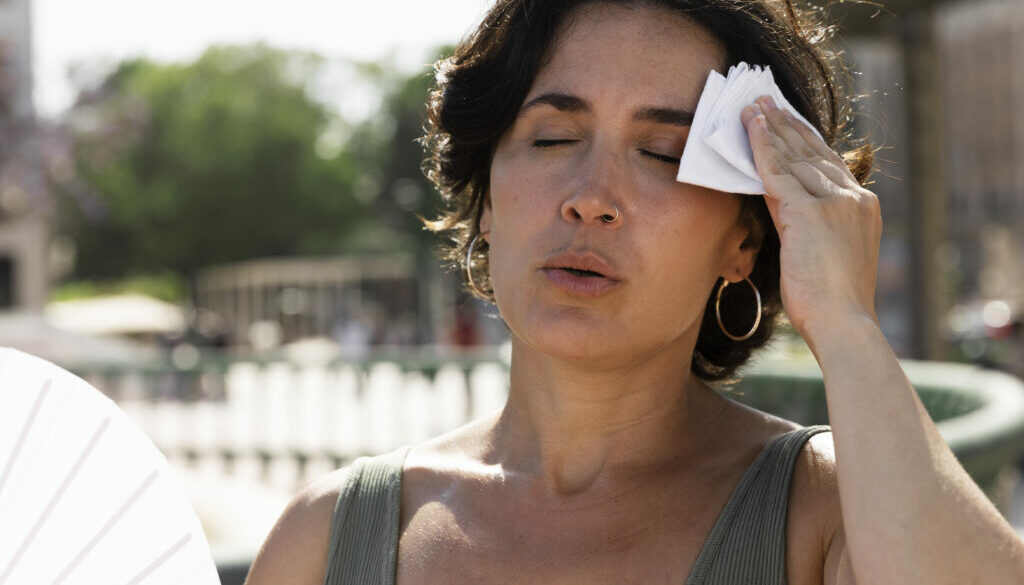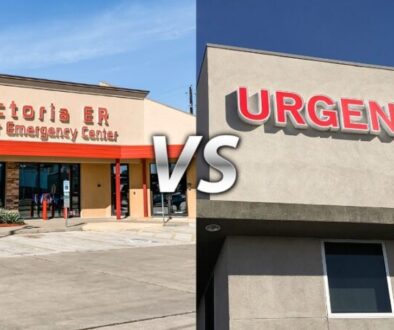How to Beat the Heat
Overexerting yourself outside when temperatures are high can lead to heat exhaustion, during which the body overheats. Though heat exhaustion is considered a mild heat-related illness, particularly when compared to heatstroke, it still requires quick treatment to avoid further and more severe damage.
As such, the team at Victoria ER has put together the following guide to assist you, should you or someone you know suffer from heat exhaustion.
What Causes Heat Exhaustion
The main cause of heat exhaustion is dehydration. When temperatures rise, it’s imperative to keep yourself properly hydrated by drinking plenty of water, especially if you’re doing any outdoor physical activity. Further, excessive sweating and the inadequate replenishment of electrolytes (minerals that include sodium and potassium) can result in heat exhaustion.
Heat Exhaustion Symptoms
Symptoms that develop due to heat exhaustion vary from person to person, but they generally include the following:
- Heavy Sweating—The body attempts to cool down by producing more sweat.
- Fatigue and Weakness—Performing even the easiest of tasks can become challenging.
- Dizziness and Lightheadedness—It’s common to feel unsteady and have trouble maintaining balance.
- Headache—Feelings of pressure or tension in the head may occur.
- Nausea or Vomiting—It’s normal to experience queasiness and/or have an upset stomach.
- Muscle Cramps—Painful muscle cramps can develop in the legs, arms, or abdomen.
- Pale, Cool, or Moist Skin—Changes in the skin directly result from the body trying to cool down and regulate its temperature by sweating.
- Rapid Heartbeat—An increased heart rate or palpations can take place, leading to racing and pounding feelings in the chest.
How to Handle Heat Exhaustion
Please understand that if someone is showing symptoms of heat exhaustion, there are several ways to seek quick treatment, such as:
- Find a Cool Environment—Get the person out of the heat and into a shaded or air-conditioned area. If possible, use a fan to create air circulation.
- Rest is Vital—Have the individual lie down and elevate their legs to improve blood flow to the brain.
- Hydrate—Provide cool water or a sports drink, which should be sipped slowly. It’s important to replace lost fluids and electrolytes.
- Cool the Body Down: Apply cool, damp cloths or use a sponge to gently cool the skin. If available, a cool bath or shower could be useful.
- Monitor: Watch for any signs of worsening symptoms. If conditions don’t improve within 30 minutes or become more severe, seek medical assistance immediately.
At Victoria ER, we offer myriad services to treat heat exhaustion, including pain management, antibiotics treatment, and IV fluid treatment. When heat exhaustion is ignored or not properly handled, the symptoms can continue to linger, resulting in additional pain, suffering, and injury. Remember, heat exhaustion can progress to heatstroke, which is a medical emergency. Symptoms of heatstroke are confusion, seizures, and loss of consciousness.
While preventing any kind of heat-related illness is ideal, if or when sickness occurs, you can always depend on Victoria ER for skilled, friendly, and professional help. In many cases, urgent care clinics and walk-in clinics do not provide the full scope of services required to effectively treat heat exhaustion. However, you can always rely on Victoria ER.
Visit Victoria ER Today!
For speedy, high-quality, emergency care, visit Victoria ER. We’re conveniently open 24/7, with no wait time or appointment needed. You don’t have to beat the heat alone—we’re always here for you!




